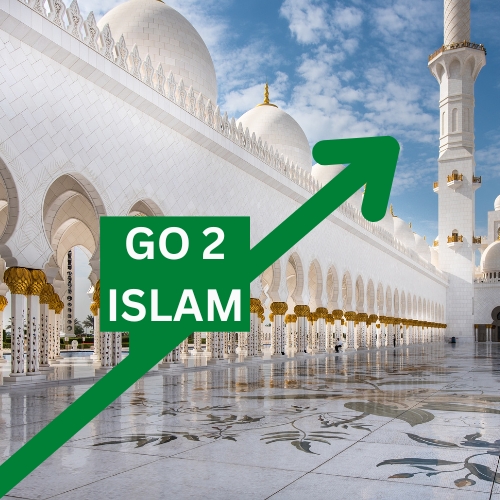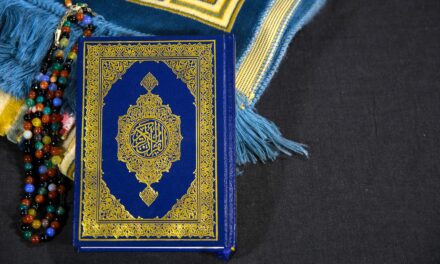In Islam, comparative religion and interfaith dialogue are important components of a broader worldview that emphasizes respect, tolerance, and understanding for different cultures and faiths. Muslims are encouraged to engage in dialogue with people of other religions, and to learn about the beliefs and practices of other faiths in order to foster mutual respect and understanding.
The Quran itself contains numerous references to the importance of understanding and respecting other religions. For example, the Quran states that “To each among you have we prescribed a law and an open way. If Allah had so willed, He would have made you a single people, but (His plan is) to test you in what He hath given you: so strive as in a race in all virtues. The goal of you all is to Allah; it is He that will show you the truth of the matters in which ye dispute” (Quran 5:48). This verse acknowledges the diversity of religious traditions and emphasizes the importance of striving towards common virtues and goals.
Similarly, the Prophet Muhammad is reported to have said, “Do not abuse the religions of others, for perhaps they may abuse Allah in ignorance and Allah will hold you accountable for it” (Sunan Abi Dawud 4374). This hadith highlights the importance of showing respect for other religions, even if one does not agree with their beliefs or practices.
In contemporary times, Muslim scholars and leaders have continued to emphasize the importance of comparative religion and interfaith dialogue. In 2007, the Amman Message, a declaration issued by Muslim scholars from around the world, affirmed the importance of respecting other religions and engaging in dialogue with people of other faiths. The message stated that “All the verses of the Quran that deal with other religions demonstrate a remarkable consistency: to know and learn from the other” (Amman Message).
Muslims are also encouraged to learn about the beliefs and practices of other religions through academic study, interfaith dialogue, and personal interactions. The Islamic tradition recognizes the importance of seeking knowledge and understanding, and Muslims are encouraged to engage in dialogue with people of other faiths in order to build bridges of understanding and promote peace and harmony.
In conclusion, comparative religion and interfaith dialogue are important components of the Islamic tradition. Muslims are encouraged to learn about and respect other religions, and to engage in dialogue with people of other faiths in order to foster mutual understanding and promote peace and harmony. By embracing the diversity of human culture and faith, Muslims can contribute to a more peaceful and harmonious world for all.
In addition to the Quran and the sayings of the Prophet Muhammad, Islamic scholars and thinkers have contributed significantly to the field of comparative religion and interfaith dialogue. Scholars such as al-Tabari, al-Ghazali, Ibn Rushd (also known as Averroes), and Ibn Arabi wrote extensively on comparative religion and engaged in dialogue with scholars from other faiths.
One of the most famous examples of interfaith dialogue in Islamic history is the Mubahala, or the “Imprecation” between the Prophet Muhammad and the Christians of Najran. According to tradition, a delegation of Christians from Najran came to Medina to debate with the Prophet Muhammad about his teachings. After several days of debate, the Christians challenged the Prophet Muhammad to a Mubahala, a ritual curse in which both parties would invoke God’s wrath on the liar. The Prophet Muhammad accepted the challenge, and on the day of the Mubahala, he and his family went out to the desert with the Christian delegation. According to tradition, when the Christians saw the Prophet Muhammad’s family, including his daughter Fatima and his grandchildren Hasan and Husayn, they recognized the Prophet Muhammad’s sincerity and withdrew from the challenge, acknowledging his prophethood.
In contemporary times, Muslim scholars and thinkers continue to engage in interfaith dialogue and comparative religion. Organizations such as the Islamic Society of North America and the International Institute of Islamic Thought sponsor conferences and seminars on interfaith dialogue, bringing together scholars and leaders from different faiths to discuss issues of common concern.
Some of the key topics of comparative religion and interfaith dialogue in contemporary Islam include the nature of God, the role of prophets, and the relationship between religion and politics. Muslim scholars and thinkers are also engaged in discussions with scholars from other faiths on issues such as human rights, environmental ethics, and global peace and security.
While there is no consensus among Muslims on how to engage in interfaith dialogue and comparative religion, most scholars and leaders agree on the importance of showing respect for other religions and fostering understanding and harmony among people of different faiths. Some scholars argue that the goal of interfaith dialogue should be to find common ground and work together on issues of mutual concern, while others emphasize the importance of understanding and respecting religious differences.
One challenge in interfaith dialogue is the issue of religious pluralism, or the idea that all religions are equally valid and true. While some Muslim scholars and leaders embrace pluralism, others reject it as incompatible with Islamic teachings. For example, some argue that the Quranic teaching that “there is no god but God” (Quran 37:35) implies that Islam is the only true religion.
Despite these challenges, many Muslims are committed to interfaith dialogue and comparative religion as a means of promoting understanding and building bridges of cooperation and respect among people of different faiths. In a world that is increasingly diverse and interconnected, the ability to understand and appreciate different cultures and faiths is essential for promoting peace and harmony.
In conclusion, comparative religion and interfaith dialogue are important components of the Islamic tradition, emphasizing the importance of respect, tolerance, and understanding for different cultures and faiths. Muslims are encouraged to engage in dialogue with people of other religions, to learn about their beliefs and practices, and to build bridges of cooperation and respect. By embracing diversity and promoting understanding, Muslims can contribute to a more peaceful and harmonious world for all.



